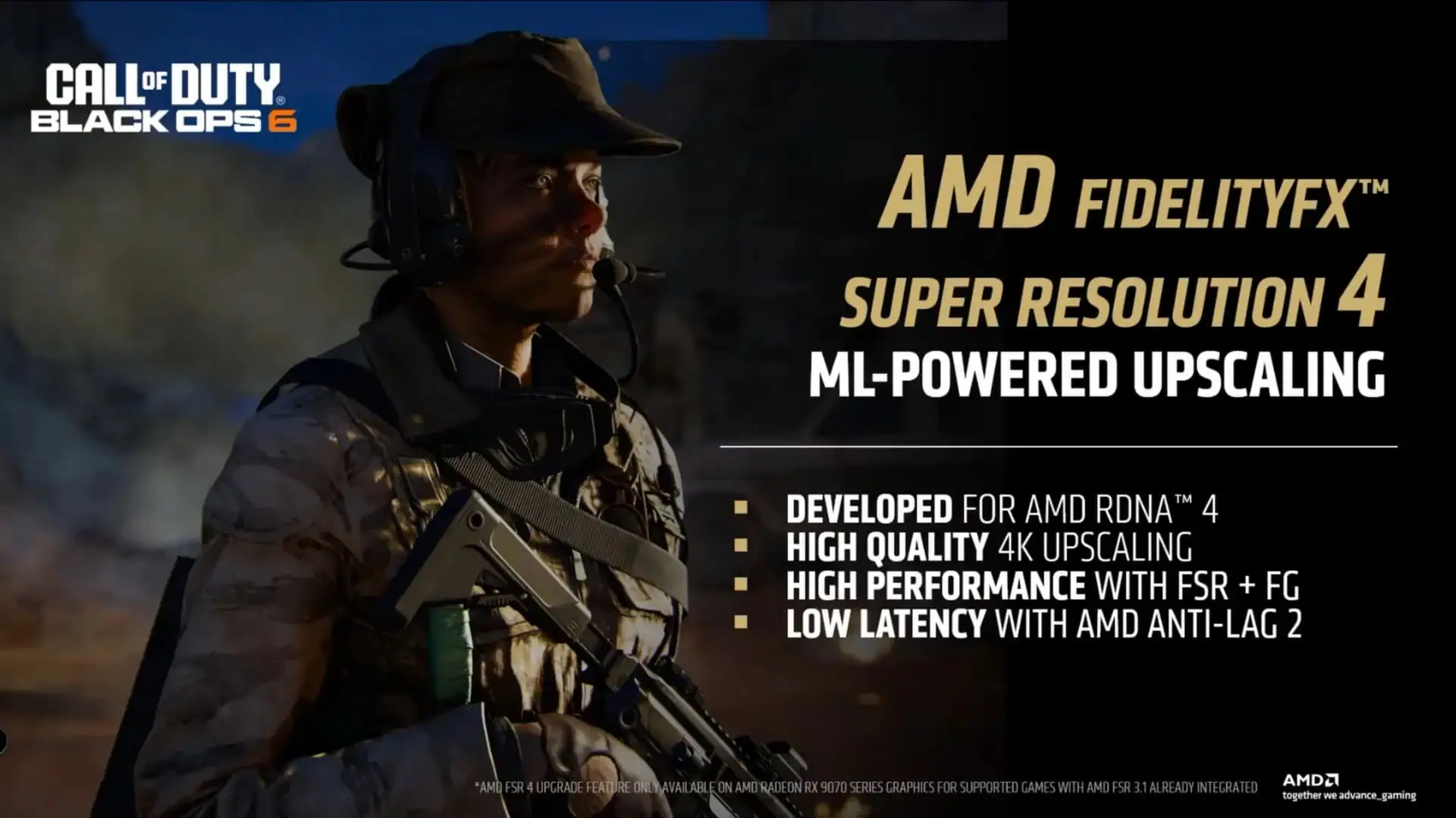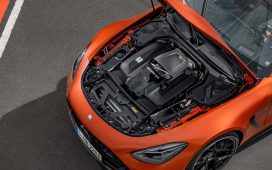AMD has just gone through several new announcements for its upcoming products, and included in those were its upcoming Radeon RX 9070 GPUs, powered by FSR 4. AMD’s FSR technology is the company’s AI-upscaling tech that helps to improve game visuals and frame rates. It’s basically AMD’s version of NVIDIA’s DLSS.
You’ll find options to enable FSR (FidelityFX Super Resolution) in many modern games these days that have a wide range of graphics options. So far, games are only supporting up to FSR 3.1, as AMD hasn’t launched anything yet that has the next version of the tech inside. Nor has it launched FSR 4. That all changes today (kind of) with the company’s announcement. AMD made the announcement during CES 2025.
As pointed out by The Verge, the announcement was more of a preview, since AMD is keeping a tight lid on most of the information. Specifically on specs, when you can buy these cards, and how much they will cost. AMD has announced two cards in total. The Radeon RX 9070 and the Radeon RX 9070 XT.
AMD Radeon RX 9070 GPUs will be available in Q1
AMD doesn’t mention any specifics but it does state that these GPUs will be available in Q1 at some point. It also says that GPUs will be available from a variety of manufacturers. So consumers will have some options when it comes to picking a specific card that fits their PC best. As of right now, AMD mentions Acer, ASUS, Sapphire, XFX, ASRock, GIGABYTE, and a few others.
Both the new GPUs are based on AMD’s RDNA 4 technology, which the company says it has “built from the ground up.” RDNA 4 will include a significant boost to AI capabilities, as well as include improvements to Ray Tracing per compute unit. What’s more, is that RDNA 4 allows for better media encoding quality.
FSR 4 will be powered by machine learning
One of the big updates to FSR 4 is the inclusion of machine learning to back it up. According to AMD, FSR 4 will allow for high-quality 4K upscaling, as well as low latency thanks to its Anti-Lag 2 tech. FSR 4 was designed for RDNA 4, which means you will need one of AMD’s new GPUs to use it. This is not dissimilar to NVIDIA’s DLSS 3 though which needs an RTX 40-series GPU to access it.
That being said, this will limit how many users can take advantage of FSR 4’s big improvements. And if you’re loyal to AMD and want those improvements, then you’ll want to prepare yourself for a new GPU purchase within the next few months.









